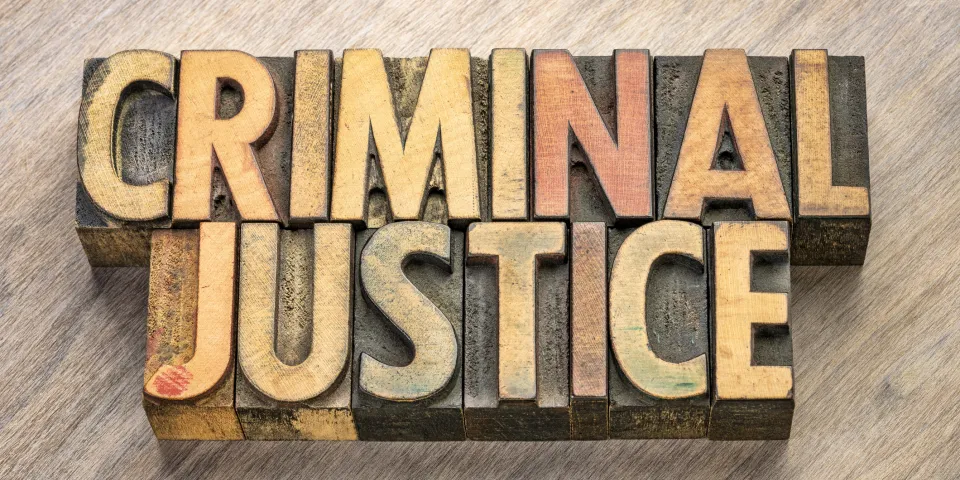Latest
Criminal Justice Careers if You Don't Want to Be a Lawyer
Jan 19, 2021

A criminal justice bachelor's degree can often be seen as a stepping stone to a career as a lawyer, but it could also help you secure a rewarding career in the public or private sector helping people navigate the criminal justice system.
Here are five criminal justice careers to consider if you don’t want to be a lawyer:
1. Detective or Criminal Investigator
Investigators are often the stars of crime dramas on TV, and a criminal justice degree could help you if you want to pursue a career in the field. Becoming a detective or criminal investigator will likely require some previous related work experience, but a criminal justice degree can provide you with foundational knowledge since detectives and criminal investigators work closely with the law.
Job responsibilities for private detectives and investigators could include verifying people’s backgrounds and statements, conducting surveillance, collecting evidence and researching civil judgments and criminal history. Knowing the law can be helpful in this role to understand what is legal or illegal, as well as what evidence can be used in court. The Bureau of Labor Statistics (BLS) predicts an 13% growth rate for the employment of private detectives and investigators from 2020-2030.
2. Parole or Probation Officer
Probation officers work with adults or adolescents who have been placed on probation rather than being sent to prison, while parole officers help people who have been released from prison become reintroduced to society. They monitor an individual’s release and aid in their rehabilitation from prison.
Both probation and parole officers supervise probationers and parolees through regularly scheduled contact by telephone, office visits and through visits made to their home or places of work. Some of their other responsibilities include conducting drug tests, offering substance abuse counseling, writing and maintaining reports and testifying in court. While their responsibilities can differ, probation and parole officers may have the same role in some states.
The BLS projects growth for probation and correctional treatment officers, but growth depends on state and local government funding. However, since community corrections are seen as a viable alternative to incarceration, demand for both probation and parole offers is anticipated to grow.
3. Police Officer
If you are not interested in practicing law, you might be interested in enforcing it. Police officers are responsible for protecting public safety by enforcing laws and regulations and are easily recognized by their uniforms and their presence in society. Officers can choose to specialize in specific types of crime, such as homicide or narcotics, or they can work in special units. Some of these units could include horseback, canine or special weapons and tactics (SWAT).
The BLS predicts a 7% growth rate for the employment of police and sheriff patrol officers through 2030 as the need for public safety will continue.
4. Fish and Game Warden
Becoming a fish and game warden could be an ideal career for someone interested in law enforcement but also enjoys nature. Fish and game wardens uphold fishing, hunting, boating and other laws to protect and conserve wildlife and natural resources. They’re also responsible for conducting search and rescue operations, investigating complaints and accidents, and educating the public about outdoor laws. Their responsibilities can differ greatly based on geographic location, environment and government regulations, and they may take on added responsibilities during and after a natural disaster.
5. Crime Analyst
Crime analysts gather and analyze data that could be used to help law enforcement agencies allocate resources, identify trends, prevent and solve crimes, and more. The career is very research-driven, and crime analysts will typically work behind the scenes to make sure that police officers and other professionals can carry out their work. While becoming a crime analyst could take additional training and education, it’s an interesting career to consider.
You can really make a difference in your community with your criminal justice bachelor's or associate degree, whether you want to work in a public-facing role or not.
Learn More About Our Criminal Justice Degree Program
Bureau of Labor Statistics (BLS), U.S. Department of Labor, Occupational Employment and Wage Statistics 2023 / Occupational Outlook Handbook 2022. BLS estimates do not represent entry-level wages and/or salaries. Multiple factors, including prior experience, age, geography market in which you want to work and degree field, will affect career outcomes and earnings. Herzing neither represents that its graduates will earn the average salaries calculated by BLS for a particular job nor guarantees that graduation from its program will result in a job, promotion, salary increase or other career growth.
Latest
Recent Blog Posts
Subscribe to our Newsletter
Get the latest news you need to know, from study hacks to interview tips to career advancement. Have it delivered right to your inbox biweekly.








